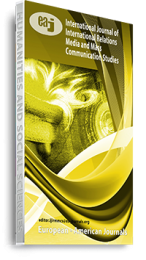It is no doubt that corruption is a global plague ravaging world’s economy. Corruption is depleting the scarce economic resources of developed and developing nations though, at varying intensities. Corruption has also been described as the black hole which must be thoroughly covered. In a bid to fighting corruption in the world, the whistle blowing mechanism was adopted by several countries including the USA, UK, South Africa and Nigeria. To complement the efforts of ICPC and EFCC, the whistle-blowing machinery was adopted in Nigeria by the Muhammadu Buhari/Osinbajo administration in 2016. This paper examined the economic gains, prospects and challenges of the whistle blowing policy in Nigeria. The Role and Framing Theories were adopted in the study to explain the question of morality and persuasiveness through specific communication strategies to the citizens. The methodology used in the study was qualitative deductions from secondary data. The study discovered that the policy has attracted 5,000 tips which led to recovery of several billions of naira. Also discovered, was that there was no law protecting whistle-blowers from victimizations and recriminations. The paper therefore recommends that, the long overdue whistle-blower protection bill of 2011 should be passed into law as an emergency law amongst others
Keywords: Challenges, Corruption, Nigeria, Prospects, Whistle-Blowing, economic gain

